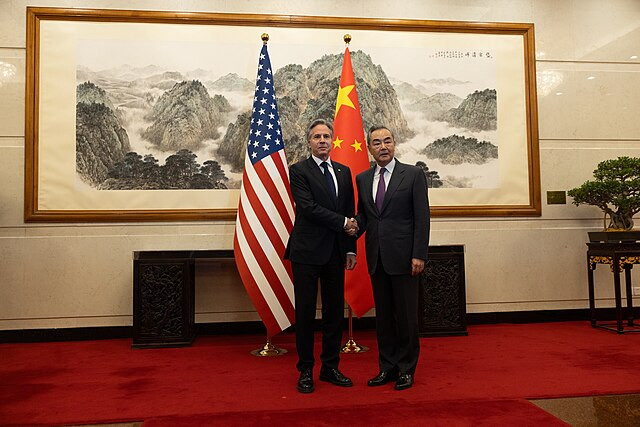U.S. Secretary of State Antony Blinken met with Chinese President Xi Jinping and other top officials in Beijing on Friday, as the two nations grapple with a range of contentious issues that have strained their relationship. The talks, which lasted over 5 1/2 hours, covered topics such as China's support for Russia's invasion of Ukraine, tensions in the South China Sea, human rights concerns, and the production and export of synthetic opioid precursors.
Blinken emphasized the importance of "responsibly managing" the differences between the United States and China, while also highlighting areas of potential cooperation, such as military communications, counternarcotics, and artificial intelligence. "We are committed to maintaining and strengthening lines of communication to advance that agenda, and again deal responsibly with our differences so we avoid any miscommunications, any misperceptions, any miscalculations," he said.
However, the secretary of state also made it clear that the United States remains "very clear-eyed about the challenges posed by (China) and about our competing visions for the future." He raised concerns about China's support for Russia, stating that "Russia would struggle to sustain its assault on Ukraine without China's support" and that Beijing's supply of materials to Moscow "threatens Ukrainian security" and "European security."
Blinken's visit comes on the heels of President Joe Biden signing a massive $95 billion foreign aid bill that includes $8 billion to counter China's growing aggressiveness toward Taiwan and in the South China Sea, as well as legislation aimed at forcing TikTok's China-based parent company to sell the social media platform. China has strongly opposed these measures, with the Chinese foreign ministry calling the U.S. position on Chinese defense trade with Russia "extremely hypocritical and irresponsible."
In his meeting with Blinken, Xi stressed the need for China and the U.S. to seek common ground "rather than engage in vicious competition." The Chinese leader expressed hope that the U.S. can "look at China's development in a positive light," calling it a "fundamental issue that must be addressed."
Earlier, in talks with Chinese Foreign Minister Wang Yi and Public Security Minister Wang Xiaohong, Blinken underscored the importance of keeping lines of communication open despite deepening divisions that threaten global security. Wang Yi noted that while the China-U.S. relationship is beginning to stabilize, "negative factors in the relationship are still increasing and building."
Wang also outlined well-known Chinese complaints about U.S. policies and positions on the South China Sea, Taiwan, human rights, and China's right to conduct relations with countries it deems fit. "China's legitimate development rights have been unreasonably suppressed," he said, urging the United States "not to interfere in China's internal affairs, not to hold China's development back, and not to step on China's red lines on China's sovereignty, security, and development interests."
Blinken responded by saying that the Biden administration places a premium on U.S.-China dialogue even on issues of dispute, noting that there had been some progress in the past year but suggesting that talks would continue to be difficult.
The United States and China are the major players in the Indo-Pacific, with Washington becoming increasingly alarmed by Beijing's growing aggressiveness in recent years toward Taiwan and its smaller Southeast Asian neighbors with which it has significant territorial and maritime disputes in the South China Sea.






